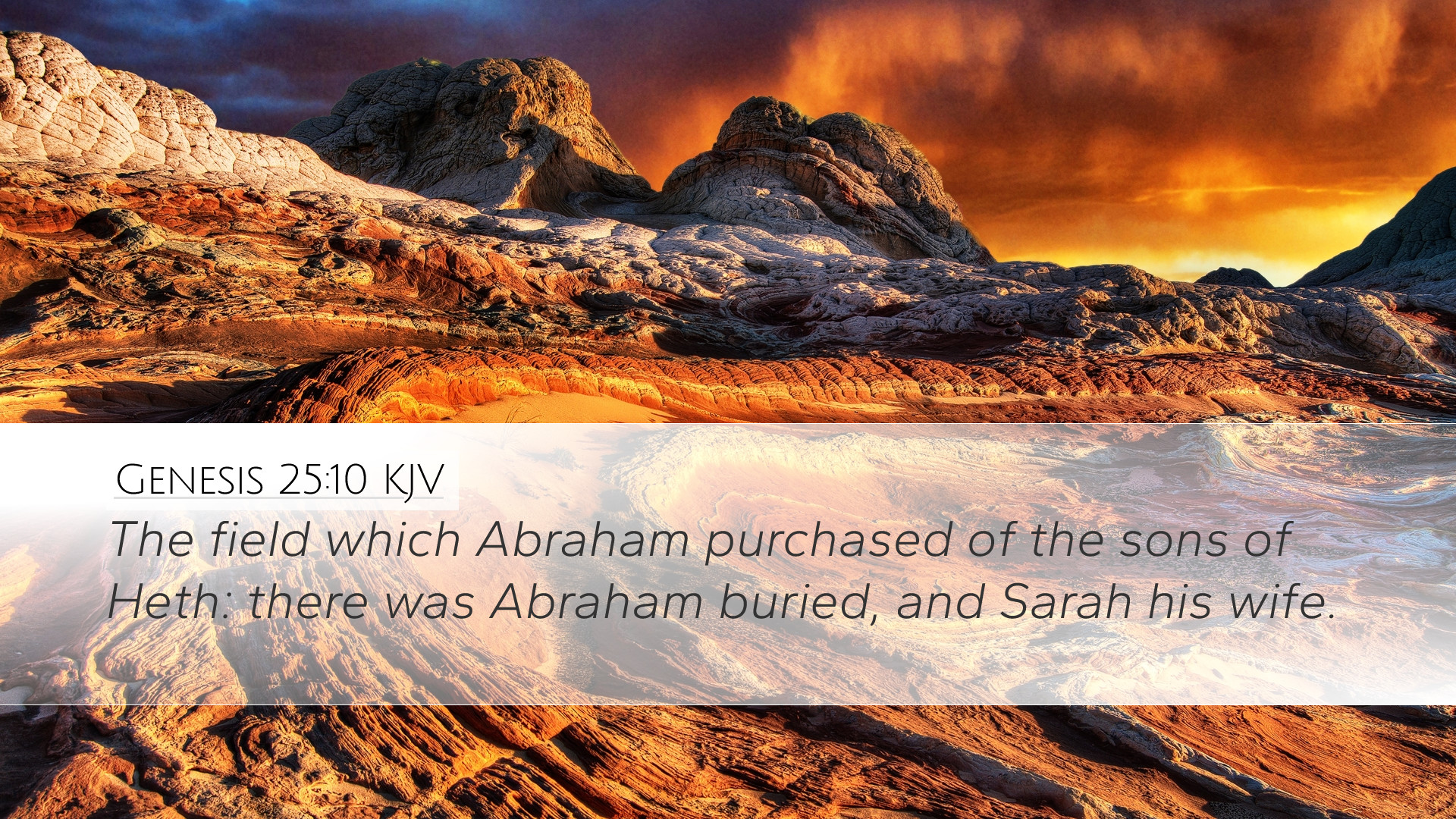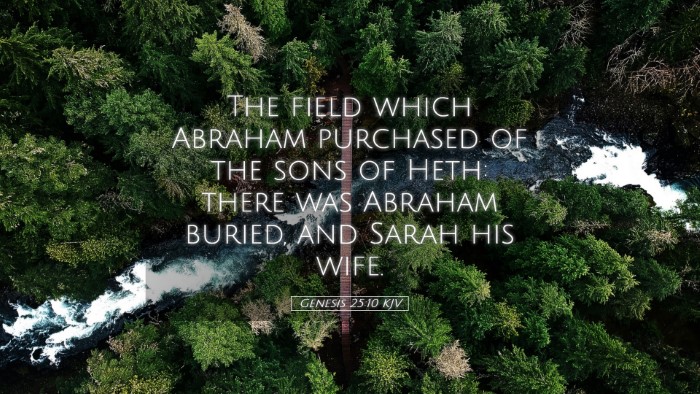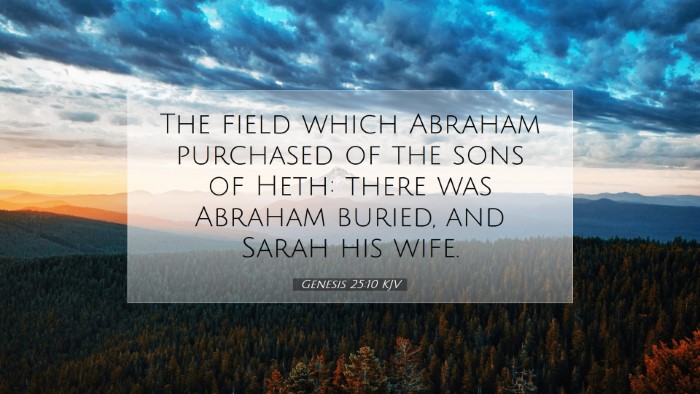Genesis 25:10 Commentary
Verse: "The field which Abraham purchased of the sons of Heth: there was Abraham buried, and Sarah his wife."
Introduction
This verse acts as a historical anchor in the narrative of Genesis, focusing on the burial of Abraham and his wife, Sarah, in the cave of Machpelah. This burial site signifies not merely a physical resting place but serves as a theological representation of God's promises to Abraham and his descendants. The location is imbued with meaning, symbolizing covenant, legacy, and faithfulness.
Contextual Analysis
Genesis 25:10 is pivotal as it concludes the life narrative of Abraham, the father of faith. After his death, this verse emphasizes the significance of the land, which was purchased and not merely given, indicating a formal claim to the Promised Land. The commentary from Albert Barnes elaborates on the historical relevance of this purchase—the cave and the field—highlighting how it marks the beginning of Israel's physical inheritance of the land.
Theological Insights
- Covenantal Significance: Abraham’s burial site is a testament to the covenant God made with him. As noted by Matthew Henry, the act of purchasing the land reflects faith in the promises of God, showcasing Abraham’s belief that his descendants would inherit the land.
- Historical Legacy: Adam Clarke comments on the enduring legacy of Abraham, presented in this burial narrative. The location subsequently becomes a familial and national heritage, emphasizing the continuity of God's plan through successive generations.
- Symbol of Hope: The cave of Machpelah serves as a symbol of hope for the Israelites, asserting their future claim to the land and embodying the spiritual promise of resurrection and eternal life, as indicated in several commentaries.
Character Reflections
Both Abraham and Sarah are pivotal figures whose lives demonstrate profound faith and obedience to God’s commandments. Commentary from Matthew Henry reflects on Sarah's integral role as a partner in God's plan, and their union in death here underscores the significance of their life together in faith.
Practical Applications for Believers
- Faith in God's Promises: Just as Abraham trusted in God’s promise regarding the land, believers today are encouraged to trust in God's promises for their lives, understanding that God's plan often unfolds in ways that require patience and faith.
- Value of Legacy: The act of burial in a purchased site teaches contemporary believers the importance of securing a legacy of faith, not only for themselves but for future generations to inherit.
- Community and Family Bonds: The burial of Abraham and Sarah reflects the importance of community and familial ties in faith. Today’s believers are called to honor these connections within the body of Christ.
Conclusion
Genesis 25:10 is not just a historical record; it encapsulates themes of faith, legacy, and covenant, providing meaningful insights for pastors, theologians, and students of Scripture. Through Abraham's burial, we witness the deep connection between faith and God's promises, urging believers to maintain hope that God's plans will come to fruition in their lives as well.


